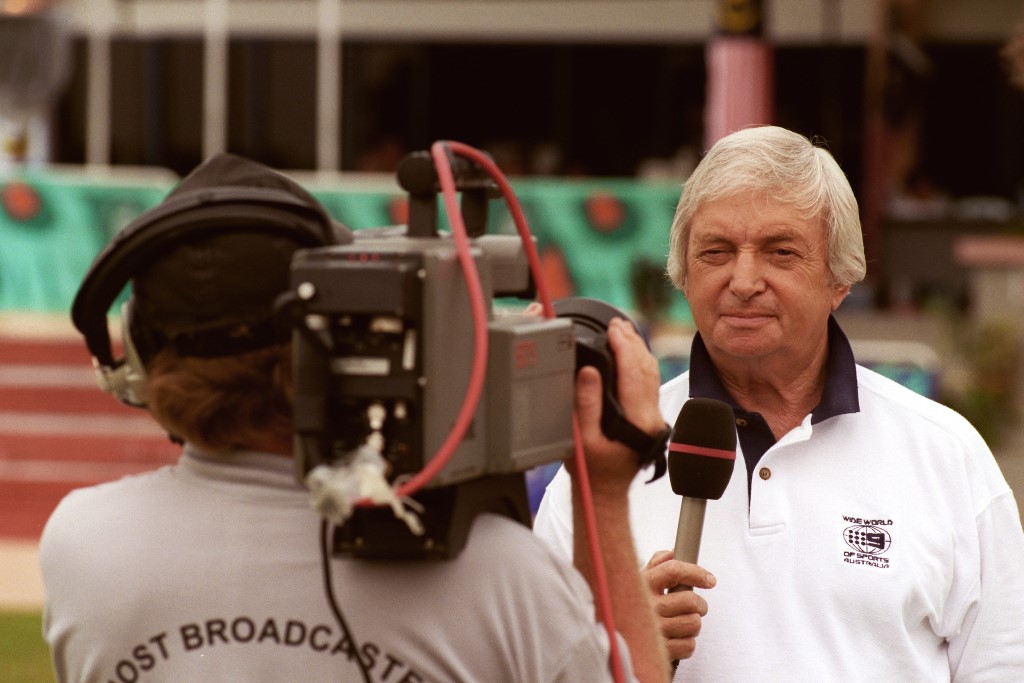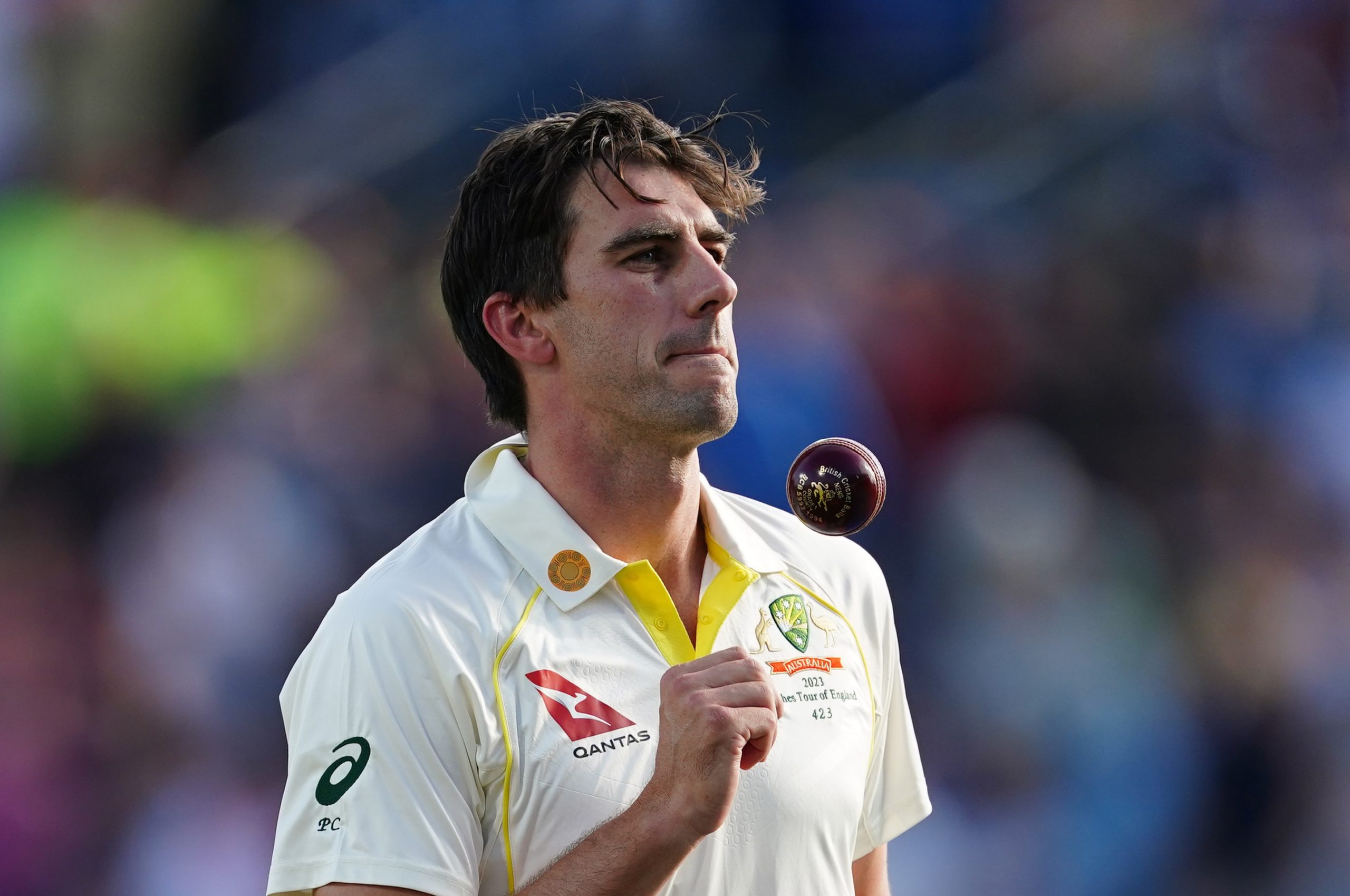
It was a hum rather than a fanfare but the BBC’s return to broadcasting live cricket, for the first time this century, was still a big event and one that might have been bigger still had some thought been put into it.
Fortunately for them they got a thrilling T20 match and an England win over Pakistan in the final over which helped to mask the multitude of sins on show, not least the near constant rabbit from the commentary team which greeted viewers tuning in.
Coverage of live cricket has come a long way since the Beeb last did some back in 1999, when Richie Benaud fronted the show. Camera technology now reveals the game’s secrets to a fascinating degree allowing viewers to get closer than ever to the action. Yet, some things remain carved in stone such as Benaud’s maxim that commentators should speak only if they can add to the TV pictures. “Never describe what the viewer can already see,” was his unwavering mantra.
It is sound advice and should be hung around the microphones of Michael Vaughan and Isa Guha both of whom appeared to have decided that the action was not compelling enough without their incessant chat (I have news for both, it was). Use this smart betting guide for the upcoming series between England and Australia. Indeed, one former broadcaster who watched the coverage felt Vaughan would benefit from using 60 per cent fewer words, which is a massive reduction given the modern trend in TV is for more chatter not less. Even so, it was excessive.
The babble might have been down to nerves given the general rustiness of BBC’s first live outing at the cricket for 20 years, though there is another explanation. Both Vaughan and Guha as well as Philip Tufnell, another member of the TV comms team for last Sunday’s game against Pakistan, are all part of Test Match Special (TMS), a radio programme which has brought cricket to listeners of BBC Radio 4, very successfully, for 63 years.
Radio encourages verbosity which becomes annoying on television where more measured chat and analysis provides a better fit to drama that unfolds visually. On TMS, Vaughan, Guha and Tufnell are summarisers, the lead commentary being done by the likes of Jonathan Agnew and Simon Mann. The leads control the pace, topics and describe the principal onfield action while also incorporating input from the summarisers. It is something Agnew and Mann do extremely well which makes it curious that neither appears to have been considered for the live TV coverage by Stephen Lyle, BBC’s new Cricket Editor.
Vaughan has worked on the Big Bash and Indian Premier League in Australia and India where lots of talking is encouraged, but he is not a lead commentator, at least not at present. Neither is Guha, a one time demon bowler with the England Women’s team, though she has the makings of a good presenter being both engaging and enthusiastic, two key ingredients for that role. Lead commentary is not easy and while there is no denying Vaughan’s credentials for sound analysis of the game, his ear for the telling phrase is distinctly tinny.
What also jarred on Sunday was the excessive use of jargon. Given the ‘new’ audience the Beeb are supposed to be attracting to cricket, there was a run through of T20’s playing conditions by Tufnell. This was done just before the start and comprised such a basic explanation as to patronise a five-year old. We all know the BBC have been away from the game for a while but life and cricket have gone on in their absence.
This is where the explanations to the uninitiated ended and the slang began. Nobody, for instance, told us what constituted a ball being “in the slot” or Vaughan’s favourite “360 degree cricket”. If you have to explain that a T20 innings lasts 20 overs you surely have to do the same for the less obvious.
There were some triumphs during the coverage such as Shan Masood, Pakistan’s opening batsman during the Test series and moonlighting here as a roving guest commentator. Dressed more formally than anyone else, Masood was everything the lead commentators were not – succinct, erudite and gracious. James Anderson, another smartly attired, was also pretty good as a summariser as was Tufnell though we could have done with more of Masood.
There was probably a first in the use of two stand-up comedians, Aatif Nawaz and Andy Zaltzman. Nawaz presented an already taped piece on what it is like to support Pakistan as part of the preamble, which I assume was meant to be amusing yet with that post-modern twist of being anything but. He also did the occasional piece from the stands with Yasir Arafat, a Pakistan pace bowler who played for five English counties. There was no real counterpoint to their chats which made them superfluous.
Perhaps forewarned by this, Zaltzman, who delivered interesting factoids from the Stat Cave, largely played it straight, but then who wouldn’t after Vaughan’s unedifying introduction: “He eats stats does Andy.”
Zaltzman did riff once or twice such as when he informed us that St Helena were ranked higher in T20 cricket than China. “It’s the only time they have beaten China at anything except for the most deaths of Napoleon hostages,” which sent Vaughan and Tufnell into paroxysms of nervous laughter and the rest of us diving for our Atlases and history books.
They went to Zaltzman at least six times during the match which was interesting. By contrast, Sky don’t use their Third Man feature when broadcasting T20, the closest equivalent of the Stat Cave, due to the frenetic nature of the format – it being difficult to make a point properly or for it to endure.
Indeed, the speed of the game means all kind of things are best left unsaid such as the broad brush question about Pakistan that Guha asked of Masood. Just as he’d begun his answer somebody smashed a six and the topic, one best left to the longueurs of Test cricket, never got revisited.
Covering cricket in bio-secure stadiums, which means empty ones, has not been easy for anyone. There are no crowd shots to cut to to take the heat off commentators or to provide a bit of light relief. At least Sky have ad breaks to relieve the pressure –something not available to the BBC.
All of which means that the production, especially the content driven by the comms team, needs to carry the programme which is where I think BBC got it wrong using their big names in roles to which they are unsuited.
It wasn’t a car crash but they fell short of the standards set by Sky, and not just those of their ‘A’ team of Michael Atherton, Nasser Hussain and Shane Warne. Mind you, they are exceptional and have been doing it far longer than Vaughan and co.
There were a few other sloppy mistakes such as commentators talking about a certain player’s batting while a graphics showing the team’s bowling figures was put up on screen. I don’t know if the production, presumably aimed at people who know nothing about cricket as next year’s Hundred will be, ended up appealing to them but it confused those of us who do profess to understand the game.
We all know the argument that cricket on the BBC will help spread cricket due to the easier access it provides, so most will want it to succeed. But people will only keep watching if what they see is good and at the moment that is questionable. To be in the game the BBC need to up theirs and fast.
DEREK PRINGLE


















